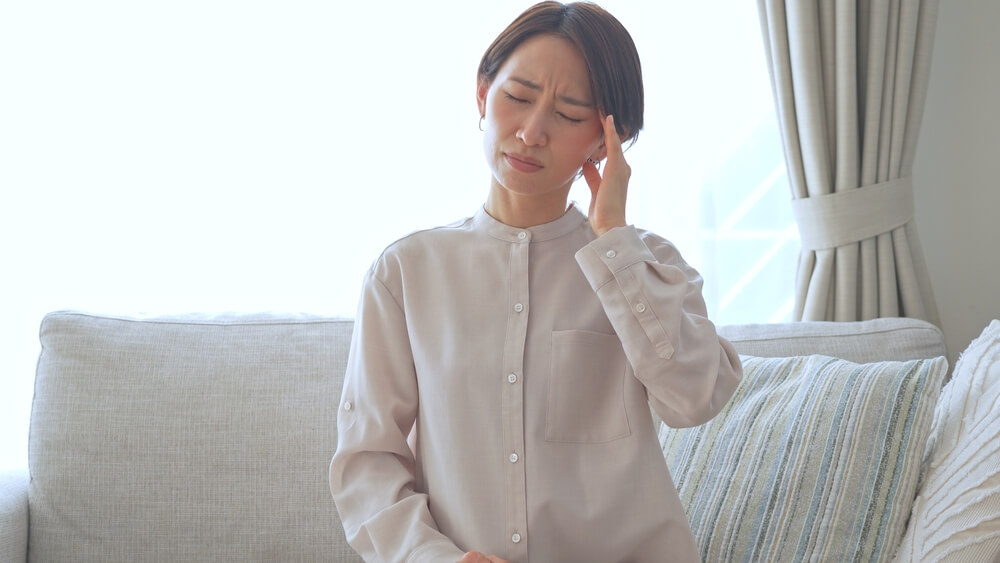Menopause marks the end of your menstrual cycle and is usually diagnosed if you have not had a period in the last 12 months. It usually happens between the ages of 45 and 55, but sometimes, it occurs even earlier. During the years before menopause, your ovaries start to shrink. That phase is called perimenopause and is usually the time you may experience irregularity in your period cycle. If your ovaries are removed, you will go through menopause immediately after.
Every woman will eventually undergo this since it is a natural biological process. Many symptoms come with it, like hot flashes, fatigue, low libido, and others, but each of them is easily treatable with lifestyle modifications and medicine. If you have recently started noticing signs of menopause, don’t hesitate to contact our experienced gynecologist in Sarasota, Florida, and get the appropriate diagnosis and treatment. At University Park OBGYN, you will get the support and care you need while going through menopause.
Signs of Menopause

Everyone goes through menopause differently, so not all women experience the same symptoms. However, the most common ones include the following:
- Irregular periods
- Hot flashes
- Problems with sleep
- Mood changes
- Weight gain
- Low libido
- Vaginal dryness
- Thinning hair and brittle nails
- Dry skin
- Chills
- Night sweats
- Slowed metabolism
- Loss of breast fullness
As mentioned previously, you may not experience all of these since the signs of menopause usually vary among women. However, you will likely encounter some irregularity in your menstrual patterns before they end. Skipping periods during the perimenopause stage is common and normal. You may get your period one month and not have it for a few months after.
Diagnosis
If you have noticed changes in your period cycle or are having hot flashes, you should consider discussing the diagnosis and treatment with your healthcare provider. There aren’t specific tests for menopause, but your doctor may recommend getting bloodwork done to check your hormones. You will likely do a test that checks the levels of follicle-stimulating hormone (FSH) in your urine. This is a hormone that controls your menstrual cycle. These tests can also be bought over the counter, but it is best to consult your doctor to discuss all possible options.
Treatment for Menopause
When discussing menopause treatment options, we usually refer to relieving the signs of menopause. There are both hormonal and non-hormonal options. These include:
- Hormone therapy – The most practical way of treating menopause is estrogen therapy. It is used to help with hot flashes and prevent bone loss. Before taking it, you will need to talk with your doctor about your personal and family medical history so you can receive the appropriate dose. Additionally, if you still have a uterus, they will probably add progestin as well. However, hormone replacement therapy still carries some risks but benefits as well. Therefore, make sure to discuss all of those with your healthcare provider and decide whether it is the right choice for your health.
- Low-dose antidepressants – Some types of antidepressants called selective serotonin reuptake inhibitors (SSRIs) can help with hot flashes. These are helpful for women who can’t take hormones for health reasons or for those who need them to regulate their mood changes.
- Vaginal estrogen – Vaginal dryness is one of the most common signs of menopause, and many women suffer from it. To relieve it, estrogen can be inserted into the vagina using a vaginal tablet, cream, or ring. This type of menopause treatment discharges a small amount of estrogen, which is later absorbed by the vaginal tissue. You can expect relief when it comes to discomfort during intercourse, vaginal dryness, and even problems with urinating.
- Medications to treat or prevent osteoporosis – There are many medications obtainable that help with this health condition. Your doctor may recommend supplementing with vitamin D supplements to help strengthen bones.
- Gabapentin – This medicine is used to treat seizures or chronic nerve pain, but it also reduces hot flashes. If taken in higher doses, it is as effective as estrogen in doing so.
If you notice any of the above-mentioned menopause symptoms, make sure to schedule an appointment with your healthcare provider and talk about treatment for menopause. Every woman is different and has a unique body, so not everyone will be given the same therapy.
Are There Any Risks to Hormonal Treatment?
Just like with any other prescribed medicine, hormone therapy may cause side effects, such as:
- Blood clots
- Breast tenderness
- Bloating
- Gallstones and gallbladder issues
- Stroke
- Deep vein thrombosis
- Pulmonary issues
- Endometrial cancer (it is increased only if you still have a uterus and are taking progestin in addition to estrogen)
Going on hormone replacement therapy is an important decision. Therefore, make sure to discuss your previous medical history with your doctor to decide if this is the correct choice for you.
How Can I Relieve the Menopause Symptoms?

Although signs of menopause may cause anxiety at times, they are usually temporary and can easily be alleviated. Try taking these steps to reduce them:
- Get enough sleep – Make sure to be active during the day to improve sleep quality, but avoid working out before bed. Avoid caffeine in the second half of the day because you might have trouble falling asleep. If hot flashes interrupt your rest, you will need to find a way to reduce them before bedtime.
- Manage hot flashes – Try drinking cold water, sleeping or sitting near a fan or open window, and dressing in layers. It is also essential to find out what exactly triggers them, for example, spicy foods, caffeine, stress, alcohol, or hot weather.
- Stay active – This is crucial in preventing diabetes, heart disease, and osteoporosis. It will also help you maintain a healthy weight.
- Reduce stress – There are many relaxation techniques to ease your mind and help with anxiety and mood changes. Methods such as deep breathing, massage, yoga, and meditation may help with menopause symptoms.
- Have a nutritious diet – Make sure to include different sources of protein, fruit, vegetables, healthy fats, and whole grains in your eating regime. Avoid eating sugary foods, and make sure to check if you have any deficiencies so you can supplement if needed.
- Don’t smoke – Smoking drastically increases your chance of stroke, heart disease, osteoporosis, cancer, and other health issues. Additionally, it can also increase hot flashes and bring perimenopause earlier.
- Strengthen your pelvis – Pelvic floor muscle exercises are shown to improve different forms of urinary incontinence and strengthen your vaginal muscles. Try doing Kegel exercises to prevent bladder leaks.
The Bottom Line
You will notice significant changes in your menstrual cycle as you age, such as irregular periods or heavy bleeding. You may also experience other signs of menopause, like hot flashes and low libido. The important thing is to not stress about it because these symptoms are common and easily manageable with the appropriate menopause treatment options. Of course, don’t hesitate to contact us at University Park OBGYN if you have any questions or dilemmas regarding menopause treatment. We will gladly schedule an appointment for you and answer all your inquiries.


